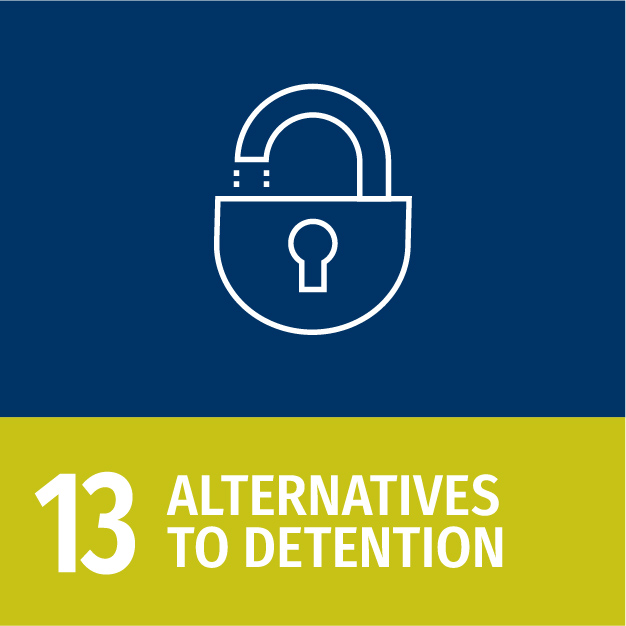-
Who We Are
WHO WE AREThe International Organization for Migration (IOM) is part of the United Nations System as the leading inter-governmental organization promoting since 1951 humane and orderly migration for the benefit of all, with 175 member states and a presence in 171 countries.
IOM Global
IOM Global
-
Our Work
Our WorkAs the leading inter-governmental organization promoting since 1951 humane and orderly migration, IOM plays a key role to support the achievement of the 2030 Agenda through different areas of intervention that connect both humanitarian assistance and sustainable development.
- Where We Work
- Take action
- Data and Resources
- 2030 Agenda
OBJECTIVE 13 - ALTERNATIVES TO DETENTION
 Use immigration detention only as a measure of last resort and work towards alternatives
Use immigration detention only as a measure of last resort and work towards alternatives
Immigration detention is a restriction on freedom of movement through confinement that is ordered by an administrative or judicial authority. In many countries, “administrative detention” is part of migration management procedures to ensure that other administrative measures, such as deportation or expulsion, can be implemented. In countries where unauthorized entry is considered a crime, detention can also be used as a criminal sanction.
Objective 13 calls for detention to be used as a measure of last resort, that human rights violations do not occur, and that States promote, implement and expand alternatives to detention. These can include non-custodial measures and community-based care arrangements, especially in the case of families and children.
Children’s rights to family life and family unity are particularly important, as well as their access to education and healthcare.
In the cases where detention is used, its negative and potentially lasting effects on migrants should aim to be reduced by guaranteeing due process, safeguarding physical and mental integrity, and that, as a minimum, access to food, basic healthcare, legal orientation and assistance, information and communication, as well as adequate accommodation is given, in accordance with international human rights law.
Which SDG targets are connected to this objetive?
How is each target measured concretely?
Indicators demonstrate the ways we can measure our advancement towards the SDGs with real data. Click HERE to see the indicators for this GCM objective.




